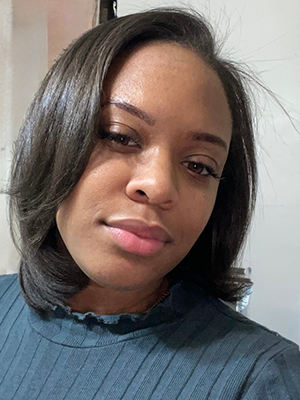Protecting Mothers and Babies Amid Climate Challenges
By Office of the President | Jan 28, 2025
 Stepping out of any Brooklyn home on a warm summer day, residents encounter the vibrant
symphony of their neighborhoods—the joyous laughter of children in playgrounds, the
aroma of sizzling barbecue, and the familiar jingle of the Mr. Softee ice cream truck
weaving through the streets. This quintessential Brooklyn scene brims with community
and connection. However, beneath these comforting sounds and scents, a deeper story
unfolds—one that School of Public Health student Sierra Chung has brought to light.
Stepping out of any Brooklyn home on a warm summer day, residents encounter the vibrant
symphony of their neighborhoods—the joyous laughter of children in playgrounds, the
aroma of sizzling barbecue, and the familiar jingle of the Mr. Softee ice cream truck
weaving through the streets. This quintessential Brooklyn scene brims with community
and connection. However, beneath these comforting sounds and scents, a deeper story
unfolds—one that School of Public Health student Sierra Chung has brought to light.
In a recent op-ed for a local newspaper, Ms. Chung shared her journey navigating Brooklyn’s sweltering summer heat while pregnant. Her words weave a compelling narrative, underscoring how climate change and extreme heat pose unique dangers for pregnant women, particularly those in underserved communities. Pregnancy transforms the body in remarkable ways—like increased oxygen consumption and cardiac output—heightening vulnerability to heat stress. When combined with racial inequities and systemic barriers, these challenges can result in heightened risks to maternal health, including complications and mortality.
The stakes for Central Brooklyn—home to many of Downstate’s patients and employees—are exceptionally high. This past summer, record-breaking heat waves revealed stark disparities. According to the New York City Heat-Related Mortality Report, black New Yorkers are twice as likely as their white counterparts to die from heat stress. Ms. Chung offers a vision of hope and change, calling city planners, policymakers, and communities to act amid these challenges.
Ms. Chung’s recommendations are both practical and inspiring: improve access to affordable air conditioning, plant more trees to establish cooling “urban canopies,” and address the “urban heat island” effect, where cities and metropolitan areas are significantly warmer than surrounding rural regions. Additionally, she emphasizes the importance of expanding renewable energy use and incorporating maternal health into broader climate action plans. She also advocates for strengthening prenatal care and building robust maternal support systems to protect mothers and their babies, ensuring their health and well-being regardless of the temperature.
Ms. Chung’s story is as much about resilience as advocacy. As a part-time Master of Public Health (MPH) student specializing in Biostatistics, she balances her studies with a demanding career as a molecular diagnostic technologist, a role she has excelled in for five years. She plans to complete the MPH this fall and further advance her passion for public health and equity. Her journey reflects deep roots in Brooklyn; her family immigrated from Guyana over 20 years ago, and she was born at Kings County Hospital.
Ms. Chung’s advocacy is a powerful reminder of the interconnectedness of climate change, public health, and equity—and the urgency of creating solutions that center our most vulnerable neighbors. She paints a hopeful picture of a Brooklyn that celebrates its vibrant summer scenes and protects all who call it home, especially mothers and their children.